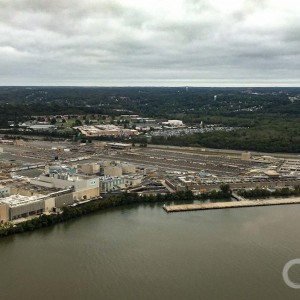The Stream, January 8: Advisory Board Questions U.S. EPA Conclusions On Fracking
The Global Rundown |
A scientific advisory board outlined concerns about a U.S. Environmental Protection Agency report that concluded hydraulic fracturing operations in the United States have not harmed drinking water supplies. It could take more than $US 1 billion to fix drinking water problems in Flint, Michigan, according to the city’s mayor, while water systems in West Virginia have not improved since a 2014 chemical spill, a think tank report found. Power shortages due to low water supplies are threatening jobs in Zambia, state leaders are reviewing the first request to divert water outside of the Great Lakes Basin, and conservation organizations in Britain are calling for more transparent reporting on sewage outfalls.
“It would be wonderful to be releasing a report today on the 2nd anniversary of the West Virginia water crisis saying that things are much better when it comes to safe, clean drinking water in the state. But that would not be accurate.” –Grant Smith, a senior energy analyst at the Massachusetts-based Civil Society Institute and lead author of a new report that calls for public ownership of water systems in Charleston, West Virginia. In January 2014, a chemical spill upstream of the city’s drinking water intake shut down water supplies for 300,000 people. (PRNewswire)
By The Numbers |
730 jobs Number to be cut at the Sentinel copper mine in Zambia due to power shortages. Zambia relies almost entirely on hydropower, and low water levels in its primary reservoirs have forced electricity rationing. Bloomberg ; ZNBC
$1.5 billion Estimated cost of repairing the ailing water infrastructure in Flint, Michigan, where a state of emergency has been declared over lead-contaminated drinking water. Detroit Free Press
1,968 sewage outfalls Number across Britain where water companies have not disclosed information about the frequency and contents of discharges, raising concerns about water pollution. Endsreport ; Guardian
Science, Studies, And Reports |
The U.S. Environmental Protection Agency was too quick to declare in a report last year that hydraulic fracturing for natural gas and oil has not led to “widespread, systemic impacts on drinking water resources,” according to the agency’s Science Advisory Board. The advisory panel said the conclusions presented in the initial report, released in June 2015, need to be clarified. The Hill
On The Radar |
The leaders of states and provinces in the Great Lakes region will begin reviewing an application by a Wisconsin city to divert water from Lake Michigan. If the leaders agree to supply water to the city of Waukesha, it would be the first exception to the 2008 Great Lakes Compact, an agreement that prohibits water diversions outside of the Great Lakes Basin. Milwaukee Journal Sentinel
A news correspondent for Circle of Blue based out of Hawaii. She writes The Stream, Circle of Blue’s daily digest of international water news trends. Her interests include food security, ecology and the Great Lakes.
Contact Codi Kozacek






Leave a Reply
Want to join the discussion?Feel free to contribute!